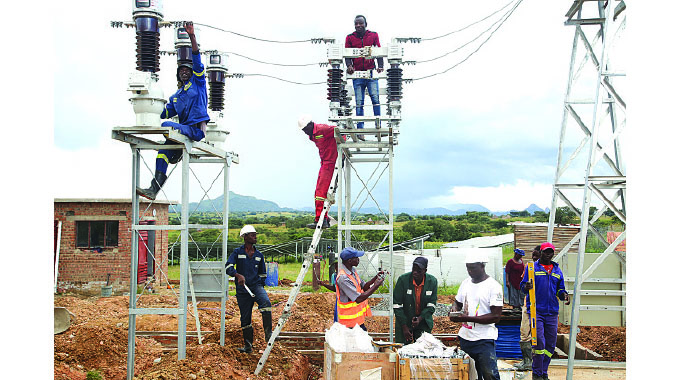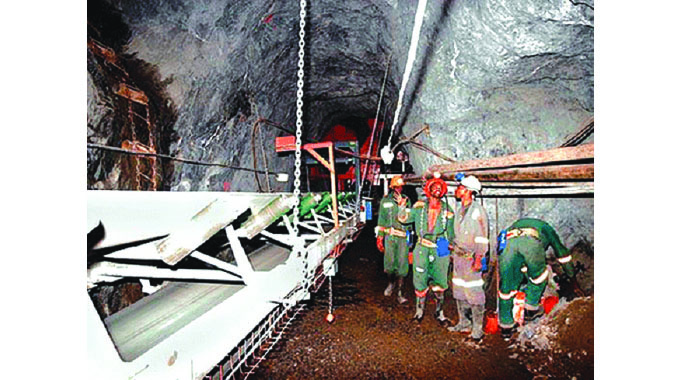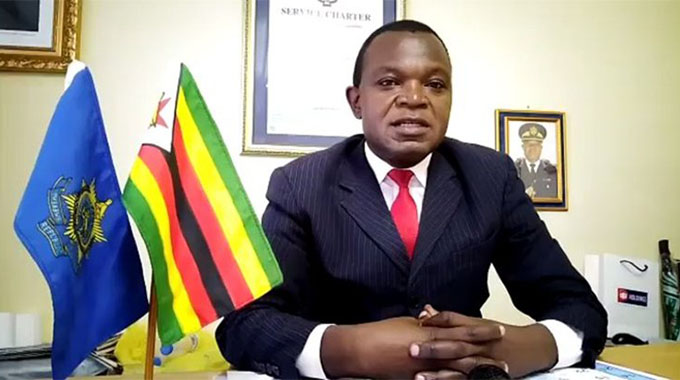Editorial Comment: Unused licences must have expiry dates

Amid all the success of the Second Republic’s investment drive and its openness to investors, both local and foreign, there is a growing problem of those who apply for licences, prospecting orders, mining claims, power station permits and do absolutely nothing, except perhaps make it harder for the next person.
President Mnangagwa touched on this when he commissioned a cannabis farm and processing plant this week of one of the exceptionally ethical investors who took advantage of the openings to create a business that had not been there before using Zimbabwean raw materials, the whole point of the investment drive.
Swiss Biocieuticals saw the invitation by the Government to apply for licences to grow and process cannabis for medical and scientific purposes.
They read the gazetted regulations, and found them very reasonable, mainly dealing with the need to secure the farms and processing plants so there was no leakage and the need to keep very good records.
The company put together a scheme, paid the fees, obtained their licence and spent US$27 million to establish a modest farm, with the irrigation and fencing, source the best varieties of cannabis seed for their needs, plant these, and build a laboratory and processing plant to produce the products that they were planning to sell on local and export markets.
It was all very proper, done very well and when they invited the President over for their commissioning ceremony, he must have been extremely happy to accept, seeing Zimbabwe making something new with smart Zimbabwean workers getting reasonable pay to do most of the work.
More wealth, more jobs and everything grown in the country, so we get exports without a continual flow of imports. This ticks all the boxes.
But of the 57 permits given for cannabis since the new policy in 2018, only 15 have been activated. The President did not go into much detail on the 15, but it is likely that Swiss Biocieutical is the first to go beyond farming and initial processing and actually making the final products they desire in Zimbabwe.
But even if the other 14 are at lesser stages, they are at least using their licences and growing the product. But when almost three quarters of those who put together the plans and paid the fees have done nothing, the President was curious over why they bothered.
Cannabis is just an example.
The problem is widespread in many other areas. Zimbabwe now allows investors who want to build a power station to apply for a licence and negotiate power prices and the like with Zesa.
A lot of people have applied, but again hardly anyone has moved to the building stage. A large coal station is being built as part of the major Tsingshan steel mill investment. A number of people have commissioned small solar installations, and Zimbabwe is quite happy to licence small plants as well as big ones.
But a lot of people just have the piece of paper, growing yellow and curling at the edges as it sits in their safe. Some admittedly are making moves, including the licence holders for the large Sengwa thermal plant and those allowed to explore and exploit the coal bed methane in Matabeleland North, but there are delays while they seek extra investment. But we still have the majority doing absolutely nothing.
The problem is serious in the mining sector. Mining law needs to encourage investment and hard work. If someone is going to spend money on prospecting for minerals they need a guarantee that they will be able to exploit what they find, and not have to deal with claim jumpers.
We have exclusive prospecting orders not being used. The law does allow these to expire if not used, but we have not always been instant in cancelling them as this could harm our investor-friendly approach.
When a company does find a commercially viable deposit of what they are looking for the Government since the advent of the Second Republic gets friendly.
Adequate-sized mining claims are granted around the deposit, so that the investment in actually digging the mine is justified and past policies of making these over-restrictive were dumped. But again the policy is built around the mining company digging, not saying it will think about this “next year”.
In some cases the lack of movement is a modest nuisance, since other people prepared to do the work can be licensed. We still grant power station licences, for example, and unused cannabis licences are more a loss to the licence holder as it is easy to grant a new one. But even here it mucks up the planning we need to do.
If we know for certain that some new power stations will come on line on a particular date, we can make the necessary plans to have that power fed into the grid and have the contractual arrangements ready, and at the same time work out what Zesa must do itself to ensure adequate supplies.
This is rather important and if some investors are just talking not doing plans can be messed up.
The mining licences are more critical since they are exclusive, trying to give a fair shake to the company and investor prepared to sink money into Zimbabwe.
But if they are not used then someone else cannot use them, and this is an argument to implementing more thoroughly the “use it or lose it” policy. The President suggested that some of those who apply for licences are doing so for speculative reasons, getting a piece of paper that gives them an asset that they may be able to sell at a profit.
This does not smear the exploration companies in say mining, and we have had two Australian companies spending serious money in establishing viable lithium deposits and exploring for gas and oil, both quite open about bringing in others with longer pockets when they have done this initial work.
But they have been very correct in what licences they seek at each stage and are not blocking development as a result. But the President’s point that some do nothing does mean that we need to think about not just expiry dates on licences, but also looking at the sort of conditions we should impose on selling licences.
When a licence is part of something that has been done, then transfer is part of normal business; if you sell a gold mine obviously the mining licence must go with it. But a mining licence without a mine need not be a negotiable asset.
Treating real investors like royalty is one thing, and we need to keep that. But we also need to have automatic systems whereby the fly-by-night types cannot make money from our resources.








Comments